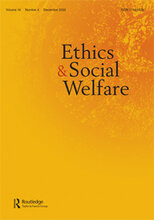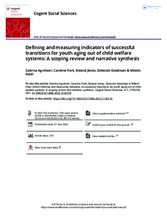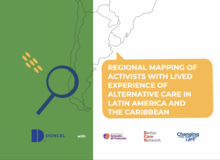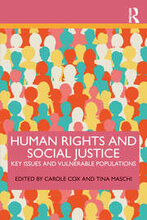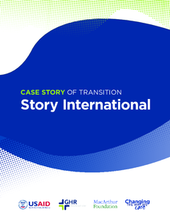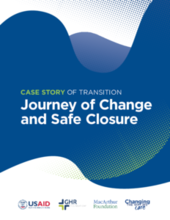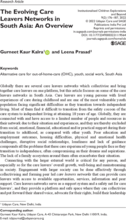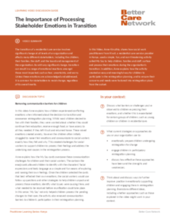Displaying 101 - 110 of 991
This study explores young people’s perceptions of their existential well-being during the transition after leaving care. The study involves peer research with young people leaving care in Finland and England.
This study represents a scoping review and narrative synthesis that sought to identify indicators used to measure the success of aging out youth in North America and their corresponding methods of assessment.
This is the first regional mapping of activists with care experience in Latin America and the Caribbean.
In this chapter of the book 'Human Rights and Social Justice', the authors focus their attention on issues and challenges facing rural youth who have exited care, with special consideration of First Nation or Indigenous youth in Canada, and offer a multidimensional framework that can support anti-colonial and anti-oppressive models of practice.
This document answers the most frequently asked questions surrounding family strengthening and alternative care in India while also addressing misconceptions around it. It aims to help practitioners, child protection workers and researchers to build their understanding of family strengthening and alternative care in India. This document has been developed in accordance with the Mission Vatsalya Guidelines.
This case story is meant to illustrate transition, the actors involved, the challenges and the success factors; recognizing that each transition is an individual process with different starting points, different dynamics and different evolutions. Story International’s transition example demonstrates the ups and downs of divesting from the orphanage model.
The Journey of Change and Safe Closure case story demonstrates the process of early engagement and awareness to supporting the long-term reintegration of children in families.
Sri Lanka government officials visited the state of Rajasthan in India to view family-based care models that will inform Sri Lanka’s child protection system as the country transitions into an innovative approach that supports children in family settings. CERI, in partnership with UNICEF Sri Lanka and UNICEF India, hosted the delegation’s visit to family-strengthening, foster care, and group foster care models implemented by Foster Care Society and the Department of Child Rights in Rajasthan.
This article focuses on some of the care leavers networks in South Asia.
In this video, Anne Kinuthia, shares how social work practitioners from Kivuli, a residential care service provider in Kenya, used a simple, fun, and non-threatening activity called My Say to help children, families and staff, surface and process their emotions during the organization’s transition.

